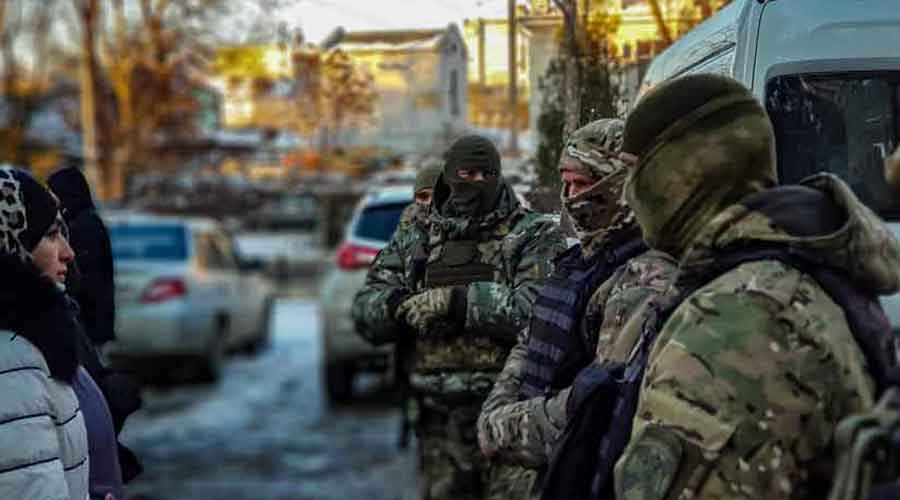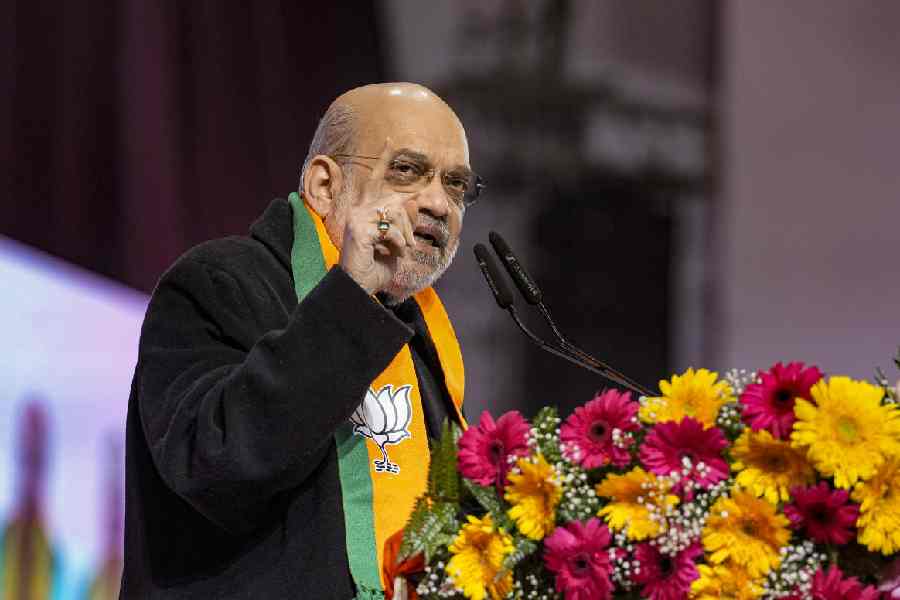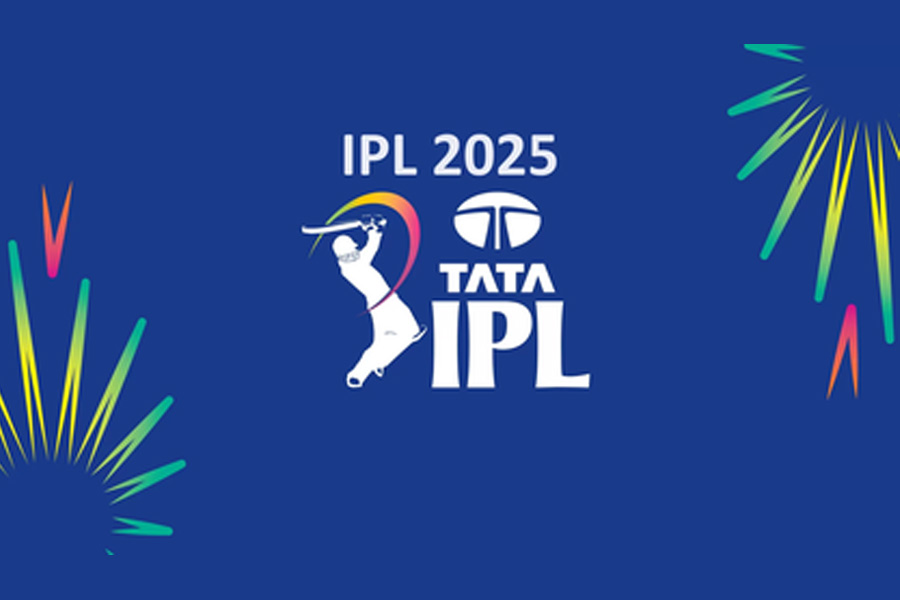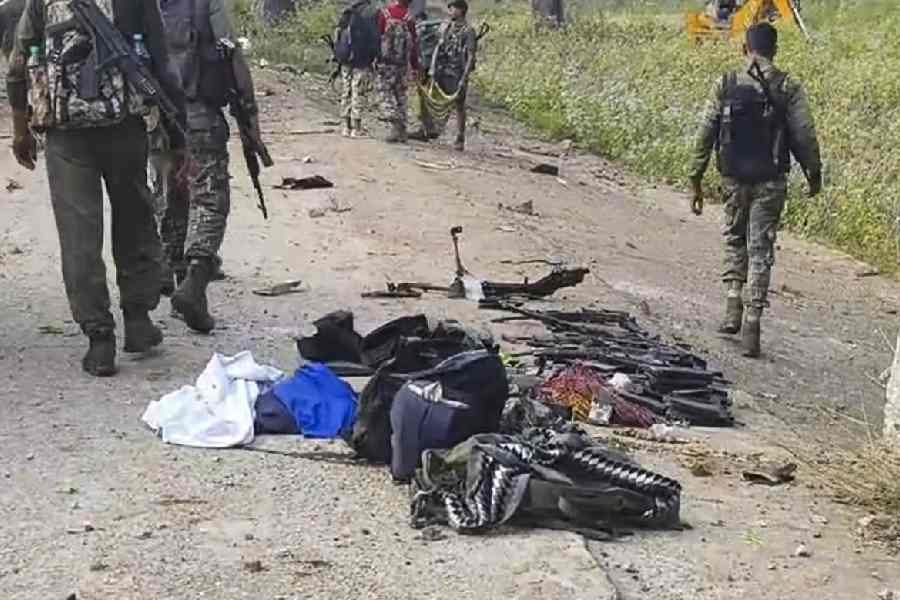For authoritarians like the Russian president, Vladimir Putin, the military can serve a number of functions. Not only is it a key aspect of maintaining control and projecting power, but in Putin's case it has served as a key national resource to plunder for personal wealth and to enrich key allies. Yet while the military is a key pillar that keeps his regime in power, Putin is also conscious of the threat it could pose to his role.
Since taking power, Putin has instituted a range of measures to maintain oversight and control over the Russian state, with the military being no exception. While this approach helps him keep his grip on power, it is not without drawbacks. Indeed, the rigid and inflexible command structure hampering Russian forces on the battlefield can be linked back to both Putin's coup-proofing efforts and attitudes left over from the nation's Soviet past.
The blistering Ukrainian advance into Russian-held territory has invited serious questions about the conflict's conclusion. It is now reasonable to consider the looming possibility of a Russian defeat, not just in terms of their modest objective of consolidating control over the Donbas region, but across the entire conflict.
Even given the widely acknowledged and extensive list of Russian military problems, the pace of the recent Ukrainian counteroffensive might come as a surprise to many. It is particularly telling that Russia has failed to effectively marshal its forces to address the Ukrainian advance. While Russian forces may be able to regroup and offer limited resistance, they will struggle to overcome the trauma that the Ukraine has inflicted on Russia's command-and-control infrastructure.
At the moment, Russian military leadership is in crisis. The Ukrainian military has managed to overwhelm its forces, not only physically but intellectually as well.
The success of the Kharkiv counteroffensive is rooted in the deception of Russian intelligence that caused them to redeploy their forces at the critical moment. There is talk of Russia falling back to establish a new frontline, though their capacity to coordinate their limited forces into a meaningful barrier is doubtful.
Failure of leadership
The natural Russian reaction was to fire the man in charge of the region, Lieutenant General Roman Berdnikov, bringing his three-week command to an end. But the problems run deep. Russia's military is of course under the control of its commander-in-chief, President Vladimir Putin.
Beneath Putin lies the Russian military infrastructure, much of which is directly involved in the invasion of Ukraine. The initial invasion was top heavy, involving no fewer than four of Russia's military district headquarters. This introduced a great deal of bureaucracy and slowed decision making.
Russia's military additionally struggles to coordinate the different components of its forces land and air, for example and get them to work properly together. By contrast, the Ukrainian side has been much more flexible, demonstrating the ability to react rapidly where needed.
On the ground, a lack of confidence in commanders has been apparent since the beginning of the war, corroding the morale of frontline solders.
Russia has lost an alarming number of its senior officers to enemy fire. More junior officers are either not empowered to make decisions without oversight or lack confidence, so senior commanders have had to maintain a direct presence on the battlefield to provide direction and motivation.
The absence of effective communication technology has compounded this issue, placing generals into the line of fire. These measures have apparently done little to mitigate Russian command failings.
Fear of failure
Why doesn't the Russian military adapt its command structure? It can't. It has been aware of these shortcomings for some time, and while it has tried to take action to improve the abilities of its forces to make quick decisions through both technology and reforms to military doctrine, these have failed to make an impact.
Even in 2022, the contemporary Russian military is still struggling to overcome its Soviet legacy of rigid command structures and top-down decision making. An ingrained fear of failure does not permit risk or experimentation on the battlefield while the capacity for field commanders to make rapid decisions is also in doubt.
Following orders from the top has become ingrained in the hierarchy. These are deep-rooted issues that are unlikely to be resolved anytime soon.
The latest setback in Kharkiv is just one of the many consequences of Russian command failings. They keep happening because a prerequisite for learning from these events is recognising that they have taken place. While increasingly both Russian nationalist sources and even senior commanders are questioning the way the conflict is being contested, these concerns are unlikely to translate into a learning opportunity without acknowledgement from Moscow.
It is worth noting that the lack of flexibility and independence within the Russian military is no accident, but an important feature that reflects the paranoia of Russian leadership.
Indeed, the command rigidity that Russia is displaying on the battlefield could perhaps be traced back to the coup-proofing actions described earlier. While connected to battlefield failings, it may well be the case that these measures help Putin ward off the building domestic consequences his disastrous Ukrainian campaign.
As the progress of events forces Putin to refocus on his position and personal security, it is likely that Russian forces will continue to flounder abroad. (The Conversation)
By Christopher Morris, Teaching Fellow, School of Strategy, Marketing and Innovation, University of Portsmouth
The Conversation- PTI











